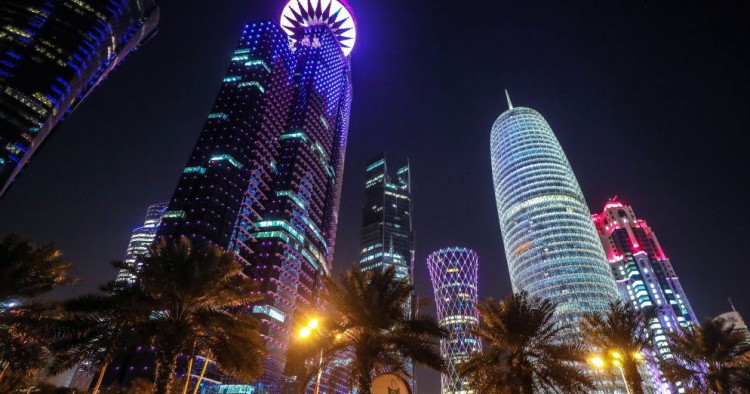Three years ago hacked Qatar News Agency reports falsely accused Qatar’s emir of making inflammatory remarks about Iran and Qatar’s GCC neighbors, triggering a backlash from the UAE, Saudi Arabia, and Bahrain. Today, the dispute persists but it is on the back-burner as the region grapples with the implications of the global pandemic crisis.
Despite some indications late in 2019 that Saudi Arabia, at least, was seeking to mitigate the effects of the dispute and stabilize relations with Qatar, there have been few signs of real progress in achieving that objective. Qatar does continue to participate in non-security related GCC programs and it did attend the last GCC summit in Riyadh in December, albeit not at the head of state level. But a recent spate of fictitious reporting — suggesting that there was a coup attempt in Doha and claiming that Qatar was planning on leaving the GCC — demonstrates that the effort to undercut the Qatari regime has not been abandoned.
How the current twin crises of the global coronavirus pandemic and economic collapse will affect the GCC governments remains an open question. Undoubtedly, all of the GCC would benefit from closer cooperation and coordination in their public health and economic responses to the crises. Recognition of that reality might push GCC leaders to set aside their differences and focus on areas of mutual interest. But there is also the possibility that GCC leaders, focused on issues of internal stability, will re-double their determination to pressure Qatar to alter its policy, which is perceived as too sympathetic to political Islam and thus threatening to its fellow GCC monarchies. Which option the leaders choose will likely influence GCC stability and security for years to come.
Amb. (ret.) Gerald Feierstein is senior vice president at MEI. The views expressed in this piece are his own.
Photo by Valery Sharifulin\TASS via Getty Images
The Middle East Institute (MEI) is an independent, non-partisan, non-for-profit, educational organization. It does not engage in advocacy and its scholars’ opinions are their own. MEI welcomes financial donations, but retains sole editorial control over its work and its publications reflect only the authors’ views. For a listing of MEI donors, please click here.













